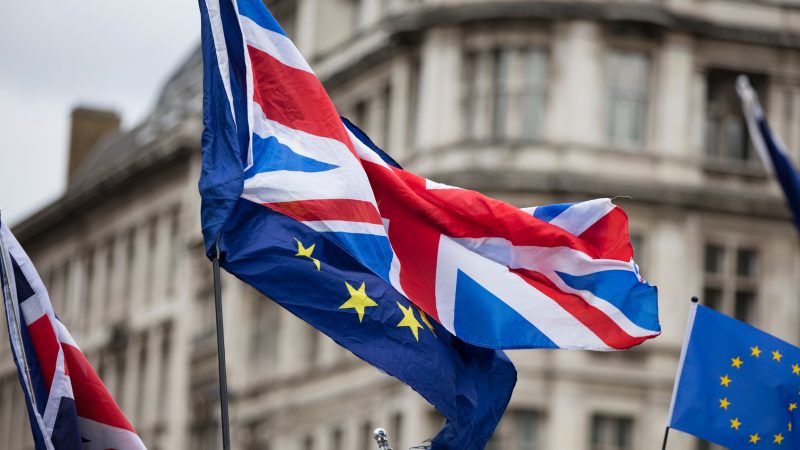
In just 50 days, Britain will leave the European Union single market and customs union, fully exiting the EU. Though the extent of it may be masked by the furlough extension and softened by whatever last-minute deal is cooked up, be in no doubt that there will be a recession with the UK particularly badly hit because of Brexit.
How should the Labour Party respond to this new reality? Under new management, rightly its approach to coronavirus has been to let the government make all the running, express cross-party support and back lockdown measures to protect public health. But Labour has also spoken out when the government has inevitably (and fatally) screwed up, and diverged when they have failed to follow the science – just as Keir Starmer did last month in calling for a two-week circuit break.
With Brexit, Labour has also watched on as the Tories blunder through – for example, the party chose not to call for a transition extension ahead of the July deadline. But as with Covid, Labour has been quick to act when politic, for instance by opposing the internal market bill, which will break international law, and the party won votes in the House of Lords this week on the legislation.
Labour has also been forthright over recent weeks in its opposition to a January 1st ‘no deal’, though thankfully Joe Biden winning the US election has made this now highly unlikely. Assuming there is a deal (probable) and that Brexit is terrible (certain), we go back to our original question: what next for Labour in the New Year and beyond?
As Seb Dance recently wrote, though a “campaign to rejoin the EU is unthinkable for the Labour Party right now”, there is still much that pro-Europeans in the party can do, and plenty the party can campaign on, such as rights, standards and internationalism. For the party in parliament, likewise there will be plenty to get its teeth into with a mountain of post-Brexit legislation to scrutinise – on trade, agriculture, fisheries, immigration and social security coordination, the environment, financial services, animal welfare. Holding the Vote Leave cabal to account for each and every undeliverable broken promise could end up being a laborious task, however, on a par the Washington Post’s tracker of Donald Trump’s lies (20,000 in mid-July and counting…).
Yesterday alone we learned: Brexit could hold up the import of the coronavirus vaccine, which will arrive via Belgium; there is likely to be no equivalence deal for the City to access EU markets, putting £26bn of financial services exports at risk; 300,000 small and medium-sized enterprises have had to stop trading this year due to Brexit; Bentley is considering its long-term future in Britain; Welsh businesses and ports are not ready for the end of the transition period; there may be sugar shortages in Northern Ireland; and medicine supply chains will be affected.
There is also still no handbook for truck drivers to prepare for new border controls; there is no time to test the new Great Britain-Northern Ireland customs declaration services, according to logistics bosses; UK firms face an £80bn hit to trade because EU trade agreements with third countries still have not been rolled over; uncertainty over security cooperation raises the risk of terror attacks in the UK; and the latest Brexit talks deadline will once again be missed.
Meanwhile, the EU itself gets on with life, moving forward seemingly without a second glance and with a legal agreement yesterday on its new long-term, post-Brexit budget, which over the next seven years will see an increase in funding of €4bn for Horizon Europe (the EU’s funding programme for research and innovation), €2.2bn for Erasmus+ (the EU’s programme to support education and training that thousands of British students have benefited from), €1bn for InvestEU (its flagship investment programme), and €600m for Creative Europe (its programme for the cultural and creative sectors – industries that contribute more than £110bn to the UK economy, and will be particularly badly hit by Brexit).
Won’t all this bad-mouthing of Brexit, and praising the EU, not be electoral suicide, I hear you ask? No, it won’t – at least not according to the most recent polling evidence. Having asked “in hindsight, do you think Britain was right or wrong to vote to leave the EU?”, three surveys in September and October indicated a ten-point lead for “wrong” (49%) over “right” (39%). This represents the biggest sustained rejection of Brexit since the referendum. Brexit-scepticism and pledging a closer relationship with the EU will not be the vote loser that some in Labour fear.
Among young people especially – screwed over by Gavin Williamson and the government on their school exams, having a miserable university experience while paying a small fortune for the privilege and now facing a future without the freedom to work, study, travel, live, love and explore throughout Europe – the more pro-European Labour is, the more popular it will be. Their futures have been stolen. For the next generation, rejoining will be a question of when, not if.




More from LabourList
Nudification apps facilitate digital sexual assault – and they should be banned
Diane Abbott suspended from Labour after defending racism comments
Labour campaign groups join forces to call for reinstatement of MPs